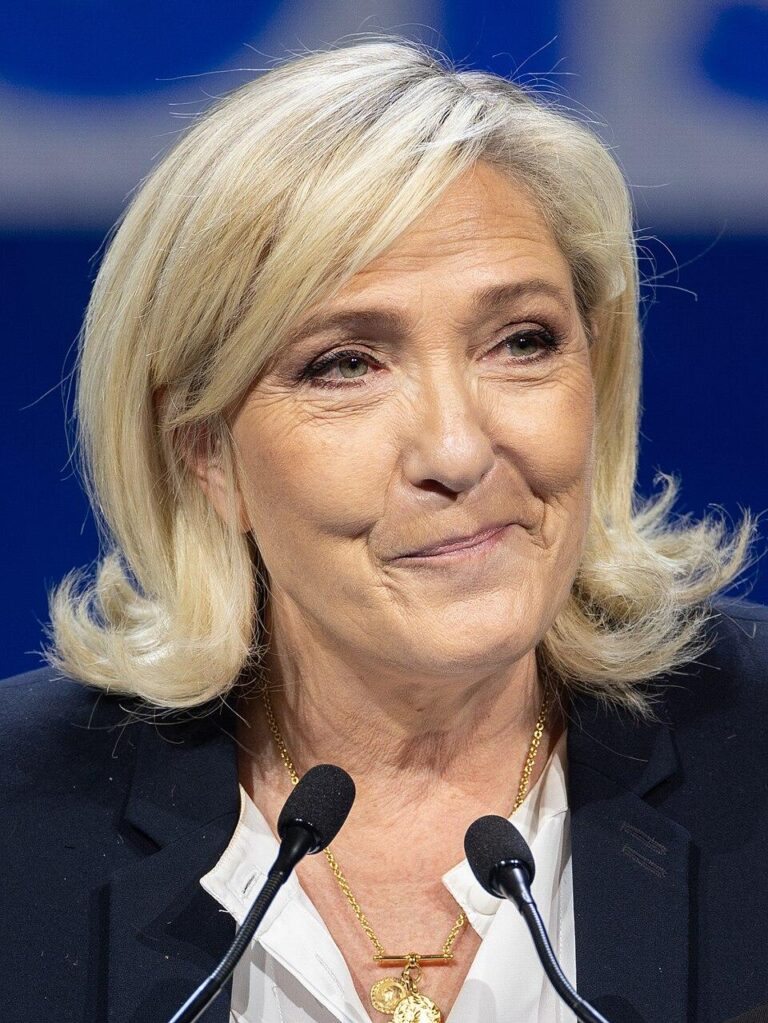Le Pen is Down but Not Out: The Resilience of a French Political Force
As the political landscape in France continues to shift, Marine Le Pen’s National Rally finds itself at a crossroads. Following a series of electoral setbacks, the party appears to be grappling with a wave of challenges that threaten its previous momentum. However, seasoned observers and political analysts argue that Le Pen is far from finished. Despite recent losses, she has showcased a remarkable ability to reinvent herself and her party, tapping into the currents of populism that resonate deeply with a segment of the French electorate. This article explores the current state of Le Pen’s political ambitions, the factors contributing to her party’s resilience, and what the future may hold for one of France’s most polarizing figures.
Le Pen’s Political Resilience in the Face of Setbacks
Marine Le Pen’s political journey has been marked by a series of challenges that have tested her resolve, yet her ability to rebound speaks volumes about her political acumen. Following her notable defeat in the recent presidential elections, many anticipated a significant decline in her influence. Instead, she has demonstrated a remarkable ability to adapt and maintain her party’s presence. Key to her strategy has been a concerted effort to broaden her appeal beyond traditional far-right constituents, focusing on issues that resonate with a larger segment of French society, such as economic challenges and public safety. This pivot has allowed her to sustain a competitive edge in the public discourse.
Moreover, Le Pen’s adeptness in harnessing the frustrations of ordinary citizens, particularly in the context of rising inflation and social unrest, has solidified her standing within the political landscape. She has effectively utilized platforms to emphasize core issues impacting voters, including:
- Economic Stability: Advocating for policies that promise to mitigate the economic burden on families.
- Security Measures: Pushing for stringent measures to address crime and public safety concerns.
- National Identity: Reinforcing a narrative around protecting French culture and identity from globalization.
In fact, recent polling trends have shown a resurgence in her popularity, prompting her party to re-evaluate strategic alliances and potential electoral maneuvers for upcoming elections. This political resilience is further illustrated by the table below, highlighting key metrics from her campaign and public perception over the past year:
| Metric | Before Election | After Election |
|---|---|---|
| Approval Rating | 32% | 41% |
| Party Membership Growth | 150,000 | 180,000 |
| Electoral Strategies Launched | 2 | 5 |
Analyzing Voter Sentiment and the Shifting Landscape
Recent shifts in public opinion have left political analysts pondering the future of key figures in the French political arena, particularly Marine Le Pen. Despite her recent electoral setbacks, emerging trends in voter sentiment indicate that she remains a formidable force. Observations reveal that a substantial portion of the electorate continues to resonate with her messaging, particularly on issues such as immigration and national sovereignty. Analysts have noted a growing discontent with traditional parties, which may play to Le Pen’s advantage, as disillusioned voters seek new representations for their frustrations.
The political landscape is also experiencing a notable evolution as younger voters become increasingly engaged. Trends suggest that this demographic is more inclined to support populist ideologies, raising concerns among established parties. Key factors influencing this shift include:
- Economic Anxiety: With rising living costs, voters are gravitating towards candidates who promise immediate change.
- Social Media Influence: The rapid dissemination of ideas has empowered fringe candidates to gain traction.
- Identity Politics: Issues surrounding national identity have become pivotal, reflecting deep divisions within the electorate.
| Factor | Impact on Voter Sentiment |
|---|---|
| Economic Concerns | Shift towards populist candidates |
| Use of Social Media | Increased visibility for fringe parties |
| Identity Issues | Growing polarization within the electorate |
Strategies for Rebuilding Support and Outreach
Rebuilding support and outreach for political figures involves a multifaceted approach that resonates with both traditional and modern voters. Engagement through community initiatives can play a vital role. Organizing town hall meetings, community service projects, and local events allows politicians to connect seamlessly with constituents. Additionally, leveraging digital platforms is essential in reaching diverse demographics. Strategies to enhance online presence may include:
- Interactive social media campaigns
- Frequent updates on policy positions
- Utilizing video content to deepen personal connections
Forming strategic alliances with local organizations and influencers can amplify outreach efforts. By collaborating on relevant social issues, political figures enhance their visibility and credibility. To better understand constituents’ needs, conducting regular surveys and focus groups is crucial. This can guide policy development to align more closely with public sentiment. An effective outreach strategy could involve a structured approach, as outlined below:
| Outreach Strategy | Expected Outcome |
|---|---|
| Community Town Halls | Increased direct engagement |
| Social Media Polls | Real-time feedback |
| Local Issue Advocacy | Enhanced local support |
Future Prospects for Le Pen and French Populism
The political landscape in France remains in flux, with Marine Le Pen’s party, although facing challenges, continuing to resonate with a significant segment of the electorate. Recent elections have shown that populist sentiments are not only persistent but potentially strengthening, as issues like immigration, national identity, and economic inequality resonate deeply among voters. Analysts suggest that Le PenŌĆÖs focus on these hot-button topics, coupled with an ability to adapt her messaging to current events, positions her party favorably for future contests.
Moreover, as traditional political parties struggle to capture public discontent, the potential for French populism to shape policy discourse increases. Key factors that could influence Le Pen’s trajectory include:
- Voter Fatigue: Ongoing dissatisfaction with the mainstream establishment may bolster support for populist alternatives.
- Youth Engagement: A concerted effort to appeal to younger voters could pave the way for greater influence in upcoming elections.
- Coalitions: Forming strategic alliances with other right-wing factions may enhance her party’s electoral viability.
| Factor | Potential Impact |
|---|---|
| Voter Discontent | Increased support for populist platforms |
| Youth Voter Outreach | Expansion of the voter base |
| Strategic Alliances | Stronger position in elections |
To Wrap It Up
In conclusion, while Marine Le Pen’s recent electoral setbacks may suggest diminished prospects for her political aspirations, the enduring appeal of her platform and the shifting dynamics within French politics indicate that she remains a formidable force. Analysts argue that her ability to adapt and reshape her messaging could pave the way for a resurgence, particularly as issues such as immigration and national identity continue to resonate with a significant portion of the electorate. As France prepares for future elections, Le PenŌĆÖs strategic recalibrations will be closely watched, underscoring the volatile landscape of French politics where the tides can turn rapidly. Le Pen may be down, but, as history suggests, she is far from out.




